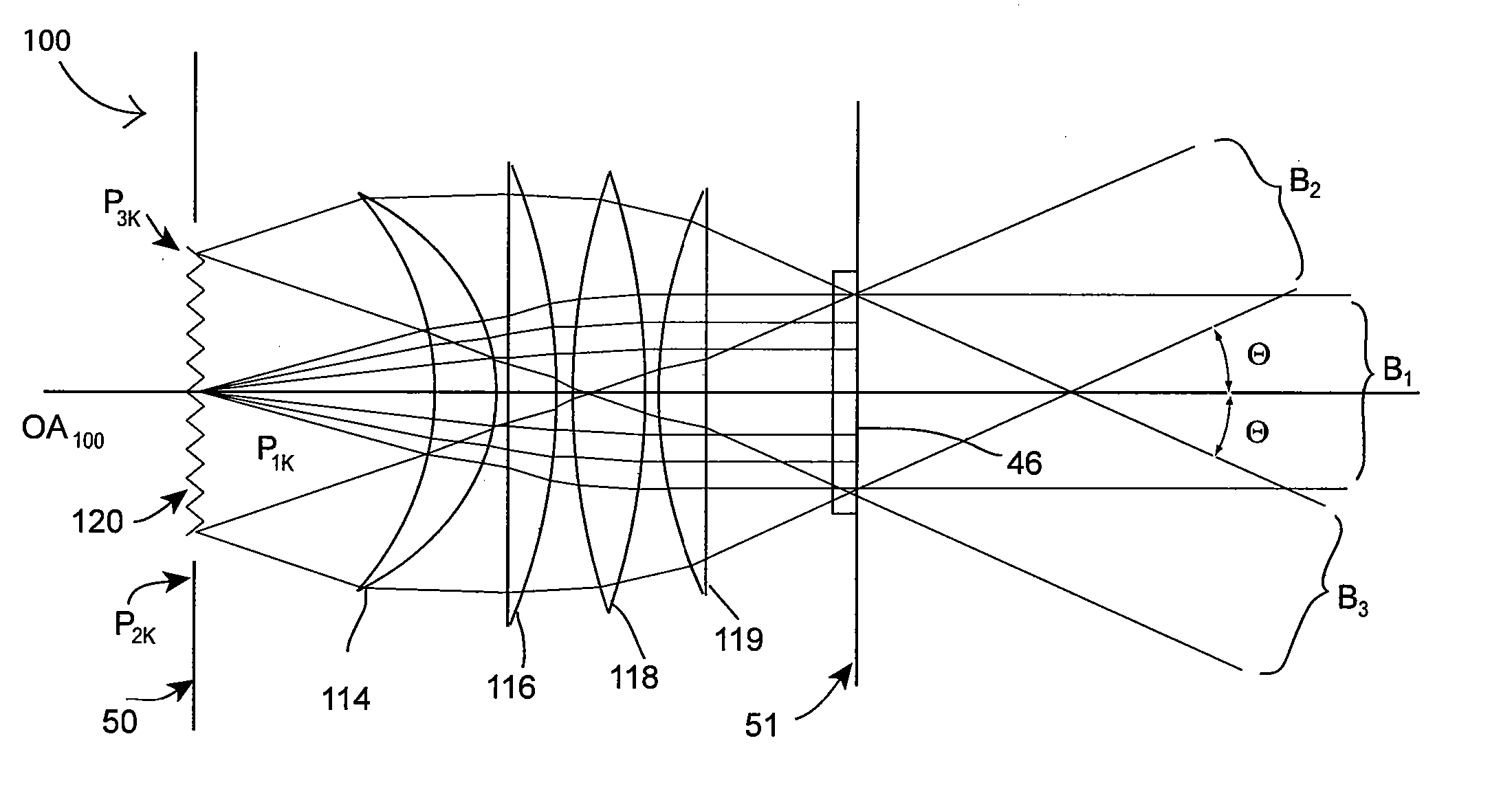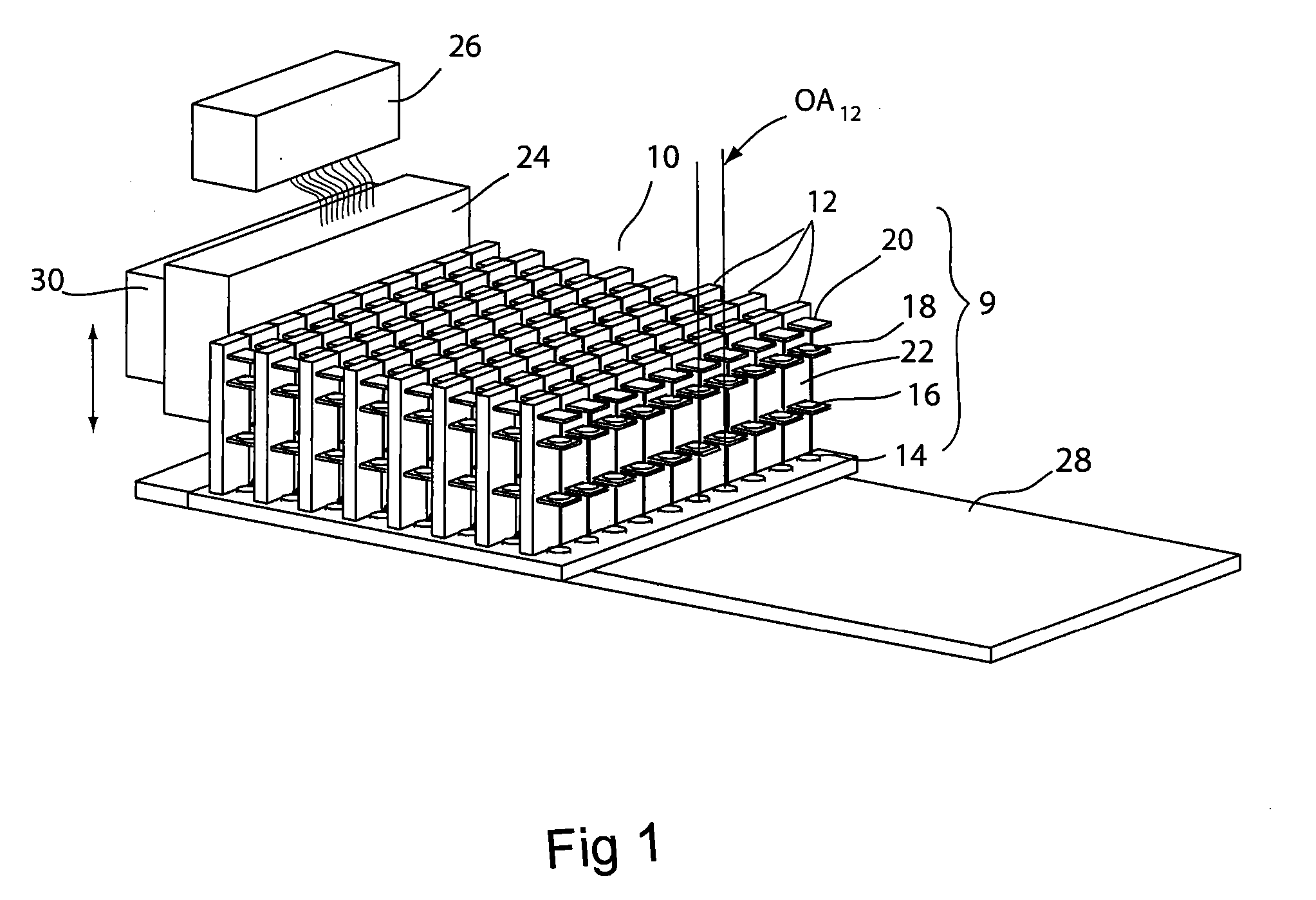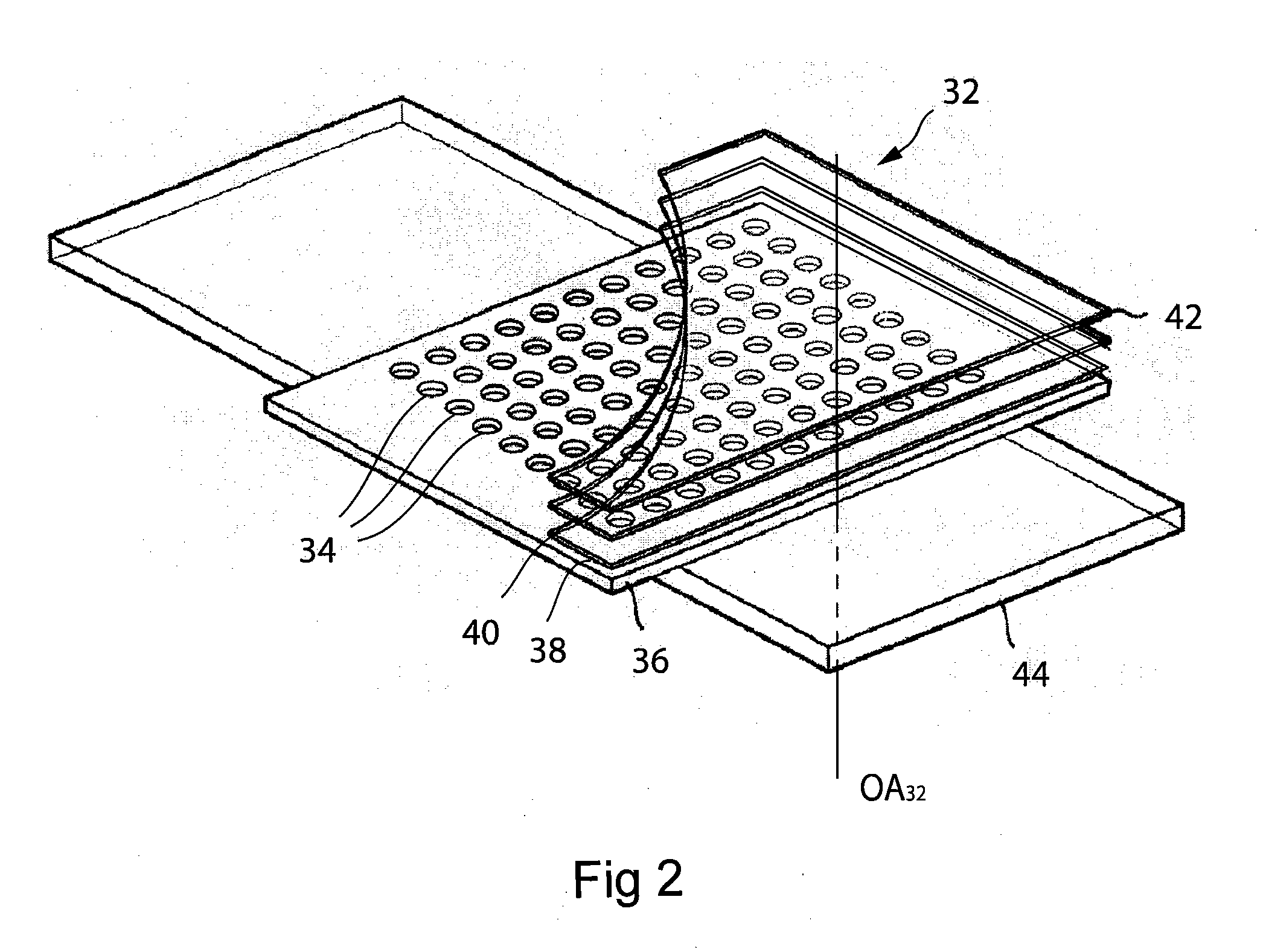Single axis illumination for multi-axis imaging system
a multi-axis imaging and single-axis technology, applied in the field of single-axis illumination for multi-axis imaging systems, can solve the problems of reducing system efficiency, wasting light, and troublesome stage manipulation and subsequent time required to image objects under high magnification, so as to improve telecentricity and modify the spatial or angular properties of ligh
- Summary
- Abstract
- Description
- Claims
- Application Information
AI Technical Summary
Benefits of technology
Problems solved by technology
Method used
Image
Examples
Embodiment Construction
[0040] The illumination systems and methods of the present invention are adapted for use with mult-axis imaging systems, particularly microscope arrays, and more particularly array microscopes. Array microscopes, which are a recent development, may be used, for example, to scan and image entire tissue or fluid samples for use by pathologists. Individual imaging elements of array microscopes are closely packed and have a high numerical aperture. This enables the capture of high-resolution microscopic images of the entire sample in a short period of time by scanning the specimen with the array. It also presents novel illumination challenges which are met by the present invention.
1. Microscope Arrays
[0041] An exemplary microscope array 10 is shown in FIG. 1. The microscope array 10 comprises an imaging lens system 9 having a plurality of individual imaging elements 12. Each imaging element 12 may comprise a number of optical elements, such as the elements 14, 16, 18 and 20. In this ...
PUM
 Login to View More
Login to View More Abstract
Description
Claims
Application Information
 Login to View More
Login to View More - R&D
- Intellectual Property
- Life Sciences
- Materials
- Tech Scout
- Unparalleled Data Quality
- Higher Quality Content
- 60% Fewer Hallucinations
Browse by: Latest US Patents, China's latest patents, Technical Efficacy Thesaurus, Application Domain, Technology Topic, Popular Technical Reports.
© 2025 PatSnap. All rights reserved.Legal|Privacy policy|Modern Slavery Act Transparency Statement|Sitemap|About US| Contact US: help@patsnap.com



